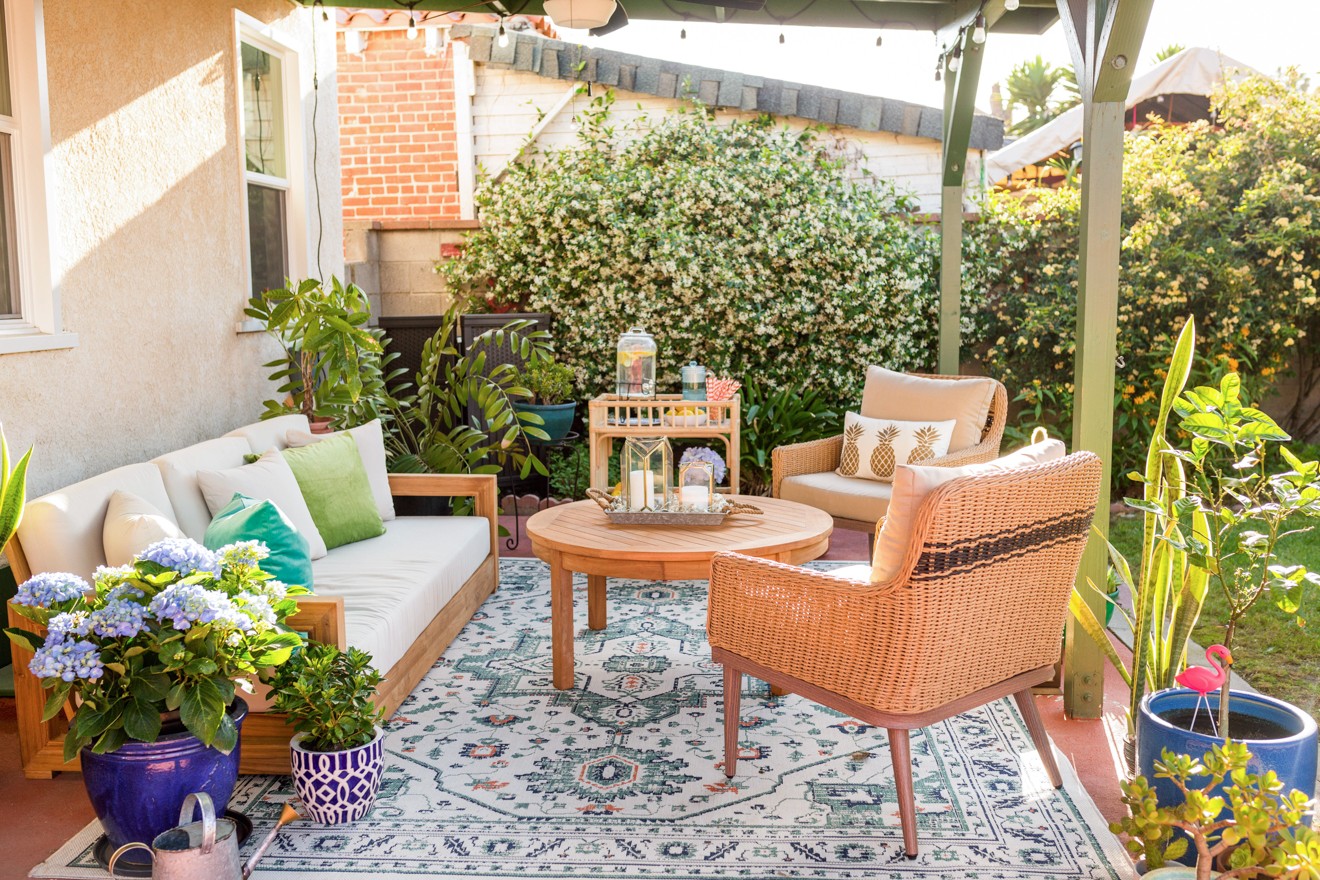
Tips for Buying Your First Home
Buying your first home is one of the biggest and most exciting decisions you will ever make in your lifetime. It can also be nerve-racking as it is a big financial investment. I am always encouraging people to take the leap and just go for it. But obviously, I realize it takes a few things to be in place before purchasing a home can happen. Finances are one of the biggest factors. The financial aspect of owning a home can become overwhelming before potential buyers have even met with a Realtor. As a licensed California Real Estate Agent, I am here to squash any fear as best I can by sharing tips for buying your first home.
I purchased my first house back in April 2020. The start of very uncertain times. However, this wasn’t the first property I have purchased. I had bought a condo five years prior. I was familiar with the home-buying process and can tell you from experience that it all initially seems much scarier than it actually is.
As a real estate agent, I talk with a lot of people who are interested in buying a home. However, they speak as though their dream of owning their own home is years away. They often think they need to save more money to find the “perfect house.” I can assure you, no matter how many boxes a house ticks, no property will ever be 100% perfect. There will need to be a compromise somewhere. This brings me to my first point in tips for buying your first home…
It Doesn’t Have to Be Perfect
I heard of a couple who waited until they were 45 years old to buy their first home. My theory is, why not start small and grow into something larger? The first property you move into does not need to be your forever home. Nor does the second, third, or fourth. Notice how I said a property and not a house? Sure I would have loved a house five years ago. It just was not in my budget. So I purchased a condo, fixed it up, grew my equity over the years, and saved money for a house. I’m all about a fixer-upper, but of course, that isn’t for everyone. We are not all Chip and Johanna Gaines over here. You don’t need to buy something and fix it to grow equity. The land you purchase will never lose its value. A property, as long as you maintain it, should increase in value. My dad always used to tell me that the three rules of real estate are: location, location, location. So choose wisely.
Real Estate is an Investment
Real estate, in my opinion, will always be a better and safer option than the stock market or bonds. Of course, your financial advisor may not agree with this. Why would they when they make money investing your money in the stock market? We all saw what happened to house prices over the last two years. A surge of demand far outweighing the supply of houses available and the desire for people to put their hard-earned money into a more stable investment opportunity sent the real estate values up 20% in the last two years. People will always need a place to live creating a demand for housing. There is only so much land available for purchase, especially in areas like Los Angeles.
My point is, start small, grow your equity, then roll that equity over into a property that meets a few more of your checkboxes.
Find a Real Estate Agent You Trust
A good Real Estate Agent is your trusted advisor. They know the market, the best negotiation skills, pocket listings (exclusive listings that will not be listed elsewhere), red flags, and reliable vendors to help you with your transaction. As a buyer, you do not pay an Agent. They get paid by the seller when the property is sold. Our job is to guide you through the process, handle the paperwork, and make sure everything runs as smoothly as possible for you. Go online, do some research with your internet availability by address. Ask questions and once you find an agent you’re comfortable with, stick with them.
Get Pre-Approved
First things first, get pre-approved by a trusted lender. This means talking to your bank, credit union, etc. to find out how much you qualify for, what your monthly payments will be, other expenses to be aware of (closing costs, PITI ( principal mortgage, interest, taxes and, insurance.) A pre-approval letter tells your agent, the seller’s agent, and the seller that your offer can be taken seriously and that you are financially able to open escrow on a property. Most agents will ask you if you have already been preapproved so that neither of you is wasting time looking at homes you cannot afford.
A pre-qualification letter is a bit different. It does not have the underwriting that a pre-approval letter has. Think about it as an initial application for a loan. If you are serious about buying a home, a pre-approval letter is better and shows you have done your homework.
Do as much research as possible. Especially before putting in any offers on a property. Review the listings your agent sends you, ask questions, and know the market. Homes can go very quickly. Before Covid, good homes stayed on the market less than a week before an offer was accepted. More than swooping in on a good house, you want to be able to compare similar properties in your desired area.
Go to Open Houses
Part of understanding the area and properties available is going to open houses. A property can look so different than the photos and there are things you’ll never get from a photo, even hundreds of photos or a virtual tour. The noise from the street outside, the ease of getting to the unit, tight quarters, or beautiful details that photos could not capture.
I went to over 40 open houses or homes with lockboxes on them that my agent was able to show me. It helped me get a feel for the neighborhoods, and the space of the property and helped me decide on factors I did and did not like to help me weed out future properties that came on the market.
Decide on Your Non-Negotiables vs. Your Negotiables
Negotiables are the items you can live without and non-negotiables are the items you cannot live without. It’s very unlikely that you’ll find a house that checks every single one of your boxes. So come up with a list you can’t live without and other items that are desirable, but not deal-breakers. For example, my non-negotiables for buying a home were:
- The house had to be in a good, safe, quiet, and clean neighborhood
- Must have a backyard
- 2 bedrooms and 2 bathrooms at a minimum. Anything larger than that was just a bonus
- Laundry on site. At first, I thought I had to have a laundry room in the house, but I ended up buying a house with laundry in the garage. All that mattered was it had the space for it in a convenient area.
Other items that were important to me, but not deal breakers were (aka Negotiables)
- Fixer-upper or move-in ready
-where the laundry room was located (a garage was fine, it did not need to be in the house)
Move-In Ready vs. Fixer Upper
One thing I quickly noticed about a lot of homes on the market is that they had been purchased a year or two before, remodeled, and sold for $50,000-$200,000 more. The Redfin app shows you the previous sales and prices toward the bottom of the listing. (I realize in some areas you can get an entire house for that cost, but we are talking about Los Angeles for reference. You can barely get a studio condo for that price in this town.)
The thing about the re-models is that while some of them were nicely done, most of them were not. They used cheap labor and materials and it would have been items I would have wanted to change anyway. I did not want to pay for someone else’s taste in a remodel. I would always rather buy a cheaper home and make my own changes as I did with my condo. (See my master bathroom remodel here and my kitchen remodel here.)
This all depends on the type of buyer you are. Maybe you don’t want to lift a finger when you purchase and have it move-in ready. Or you are the type to get your hands dirty. All up to you.
If you have any questions about my personal experience buying a home, I am more than happy to answer them for you! When I become a licensed Real Estate Agent I will answer any and all questions then!
Get a Real Estate Sales Person You Trust
This part is so important. You have to feel comfortable and trust the person who is helping you in this process. I was very lucky to have a lot of my own knowledge and also rely on my real estate agent to help me search for houses. No one likes a pushy salesperson. The one who listens well is patient to answer your question and puts in the effort to find you what you’re looking for will make the house-hunting process so much easier. Of course, be considerate of the salesperson’s time as well. This is a living for them and no one likes to have their time wasted.
References
Another excellent place to start on your real estate journey is by listening to podcasts. Real Estate Rookie by Bigger Pockets is one of my absolute favorites. They talk a lot about real estate Investing which is something I have gotten very interested in this year. (I am already making plans to buy a third property next year if all goes well.)
Thank you for stopping by and reading!
xoxo,
Laura







Thanks for these great tips very helpful. Keep sharing!! Thank you:)